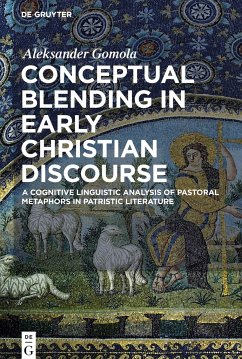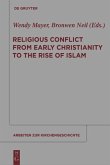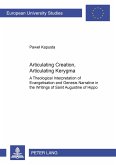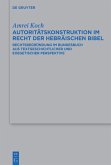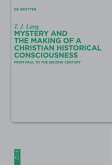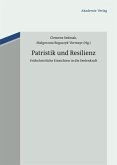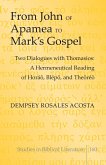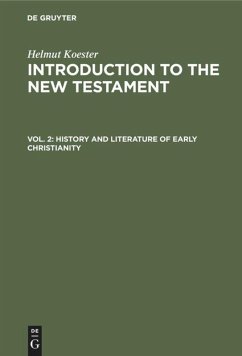Cognitive linguists and biblical and patristic scholars have recently given more attention to the presence of conceptual blends in early Christian texts, yet there has been so far no comprehensive study of the general role of conceptual blending as a generator of novel meanings in early Christianity as a religious system with its own identity. This monograph points in that direction and is a cognitive linguistic exploration of pastoral metaphors in a wide range of patristic texts, presenting them as variants of THE CHURCH IS A FLOCK network.
Such metaphors or blends, rooted in the Bible, were used by Patristic writers to conceptualize a great number of particular notions that were constitutive for the early church, including the responsibilities of the clergy and the laity, morality and penance, church unity, baptism and soteriology. This study shows how these blends became indispensable building blocks of a new religious system and explains the role of conceptual blending in this process. The book is addressed to biblical and patristic scholars interested in a new, unifying perspective for various strands of early Christian thought and to cognitive linguists interested in the role of conceptual integration in religious language.
Produced with the support of the Faculty of Philology, Jagiellonian University in Kraków, Poland.
Hinweis: Dieser Artikel kann nur an eine deutsche Lieferadresse ausgeliefert werden.
Such metaphors or blends, rooted in the Bible, were used by Patristic writers to conceptualize a great number of particular notions that were constitutive for the early church, including the responsibilities of the clergy and the laity, morality and penance, church unity, baptism and soteriology. This study shows how these blends became indispensable building blocks of a new religious system and explains the role of conceptual blending in this process. The book is addressed to biblical and patristic scholars interested in a new, unifying perspective for various strands of early Christian thought and to cognitive linguists interested in the role of conceptual integration in religious language.
Produced with the support of the Faculty of Philology, Jagiellonian University in Kraków, Poland.
Hinweis: Dieser Artikel kann nur an eine deutsche Lieferadresse ausgeliefert werden.
